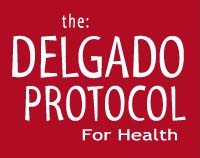 There is a tendency to place too much importance on financial gain in the pursuit of happiness. However, without your health, all the money in the world won’t make you happy. If you want to enhance your quality of life the most important thing you can do is integrate lifestyle modifications that will encourage health on all levels. The one thing that hormone therapy, meditation, sleep and nitric oxide share in common, is that they all work synergistically to optimize mental, physical, and emotional wellbeing. Below is a deeper explanation of how these four things help optimize health and tips for incorporating these lifestyle medicine interventions into your life.
There is a tendency to place too much importance on financial gain in the pursuit of happiness. However, without your health, all the money in the world won’t make you happy. If you want to enhance your quality of life the most important thing you can do is integrate lifestyle modifications that will encourage health on all levels. The one thing that hormone therapy, meditation, sleep and nitric oxide share in common, is that they all work synergistically to optimize mental, physical, and emotional wellbeing. Below is a deeper explanation of how these four things help optimize health and tips for incorporating these lifestyle medicine interventions into your life.
Hormone Therapy
The majority of adults have at least one hormone imbalance well before they reach menopause or andropause (male menopause). If left unaddressed, these imbalances contribute to accelerated aging and an increased risk for many chronic diseases. If you have any of the following symptoms, you should have your hormone levels measured by a specialist who uses a combination of blood, urine and saliva analysis: hair loss, fatigue, brain fog, trouble sleeping, acne, weight gain (especially around the midsection), sugar or salt cravings, sexual dysfunction, infertility, or loss of libido; moodiness, depression or anxiety, hot flashes, and in women — irregular or painful periods.
Recommendations:
If an imbalance is identified, consume a plant-based whole foods diet that includes a wide-range of raw vegetables, and a moderate amount of fruits, wholegrains, nuts, and seeds. It’s also important to eat something small every three hours to keep your blood sugar balanced and support adrenal health (the adrenal glands play a key role in the production of many essential stress and sex hormones). To enhance hormone balancing results, include proprietary blended supplements with formulations that are geared towards your particular imbalance (https://unitynaturals.com/). Finally, if you don’t notice an improvement in symptoms after 6 weeks, talk to your healthcare provider about bioidentical hormone therapy.
Meditation
 If you were to do just one thing in effort to improve your mental, physical and emotional wellbeing – meditation should be it. Meditation provides your body with rest that is between two and five times deeper than sleep, and in that calm, peaceful state, healing on all-levels can occur. Studies show that meditation helps increase energy and productivity, prevent age-related loss of brain volume, and enhance attention, creativity, memory, and processing speed. It also helps to enhance mood and self-esteem, and reduce anxiety, depression, insomnia, blood pressure, IBS symptoms, and chronic pain.[i] [ii] Perhaps most importantly of all, it dramatically lowers stress levels and in so doing, reduces the risk for cardiovascular disease, diabetes, obesity, gastrointestinal disorders, depression, allergies, and immune system dysfunction…to name a few. [iii][iv]
If you were to do just one thing in effort to improve your mental, physical and emotional wellbeing – meditation should be it. Meditation provides your body with rest that is between two and five times deeper than sleep, and in that calm, peaceful state, healing on all-levels can occur. Studies show that meditation helps increase energy and productivity, prevent age-related loss of brain volume, and enhance attention, creativity, memory, and processing speed. It also helps to enhance mood and self-esteem, and reduce anxiety, depression, insomnia, blood pressure, IBS symptoms, and chronic pain.[i] [ii] Perhaps most importantly of all, it dramatically lowers stress levels and in so doing, reduces the risk for cardiovascular disease, diabetes, obesity, gastrointestinal disorders, depression, allergies, and immune system dysfunction…to name a few. [iii][iv]
Recommendations:
To reap the benefits of mediation, all you have to do is dedicate 15 minutes a day to it. Don’t try to stop your thoughts, instead simply acknowledge them and refuse to engage with them. Guided meditations are great for beginners who have trouble quieting their minds, and there are several apps (such as headspace) that offer guided meditation, and include free trials. Laser focused concentration (LFC) is another powerful tool that will effortlessly bring you into a deep meditative state (http://www.delgadonaturals.com/lfc-brainwave-glasses-w-sleep-mask/). Finally, try to meditate in the same place and at the same time every day; studies show this can help induce a meditative state quicker.
Optimize Sleep
 Sleep influences your health, longevity and wellbeing in a variety of different ways. Most of the body’s reparation occurs during sleep, and healthy sleeping patterns will help to enhance healing, boost the immune system, balance your hormones naturally, and keep you on track with your diet and exercise regime. Conversely, sleep deprivation increases stress and inflammation which is the root cause of most, if not all chronic disease. It also interferes with cognition; leads to moodiness, irritability and anger, and reduces your ability to handle stress. If all that weren’t bad enough, it also triggers weight gain by reducing the hunger suppressing hormone leptin and increasing the hunger stimulating hormone ghrelin.[v]
Sleep influences your health, longevity and wellbeing in a variety of different ways. Most of the body’s reparation occurs during sleep, and healthy sleeping patterns will help to enhance healing, boost the immune system, balance your hormones naturally, and keep you on track with your diet and exercise regime. Conversely, sleep deprivation increases stress and inflammation which is the root cause of most, if not all chronic disease. It also interferes with cognition; leads to moodiness, irritability and anger, and reduces your ability to handle stress. If all that weren’t bad enough, it also triggers weight gain by reducing the hunger suppressing hormone leptin and increasing the hunger stimulating hormone ghrelin.[v]
Recommendations:
To enhance sleep quality go to bed and wake-up at the same time every night, avoid stimulants (caffeine and spicy foods) for 8 hours before sleeping, and sleep in a cool, dark, silent room (or use white noise to drown out ambient sounds). If you have trouble falling asleep an Epson salt bath, journaling, lavender drops on your pillow, keeping electronics out of the bedroom, LFC, and meditation can all help. You can also use low-dose melatonin (less than 1 mg) to break the cycle of insomnia, and take herbs such as chamomile, kava, magnolia bark, and valerian to promote relaxation. If all the above fails, you may have a nitric oxide deficiency that needs to be addressed.
Nitric Oxide
Nitric oxide (NO) is an important signaling molecule that is produced in every tissue and organ of the body. Nitric oxide is a powerful vasodilator, it helps to relax and widen the blood vessels, and as a result, enhances oxygenation and blood flow throughout the body. Nitric oxide levels being to steadily decline in your 20’s and many adults are deficient in this important molecule. Low NO levels accelerates the aging process, reduces your ability to heal, interferes with strength and endurance, and increases the risk for many chronic diseases including heart disease, type-2 diabetes, and Alzheimer’s disease. Some common signs that signify low NO levels include: reduced immunity, brain fog and memory problems, ongoing fatigue, irritability, anxiety, bone loss, high blood pressure, loss of libido, erectile dysfunction, and inability to orgasm (males and females). It can also lead to poor sleep by reducing the natural relaxation chemical GABA and shortening important sleep stages. [vi]
Recommendations:
You can boost nitric oxide levels by eating at least 12 servings of raw veggies daily and including the following nitric oxide boosting foods: beets, pomegranate juice, watermelon, dark leafy greens, celery, dark chocolate and garlic. Any type of exercise will also boost NO, and muscle building is particularly beneficial because NO levels increase concurrently with muscle mass growth. Another way to boost nitric oxide production naturally is to exposure your skin to sunlight or use a sunlamp for 20 minutes a day. Certain supplements such as Stay Young can also markedly increase NO, and you can purchase Stay Young and take a free NO assessment quiz here:
[i] https://www.project-meditation.org/a_wim1/statistics_on_people_who_meditate.html
[ii] https://nccih.nih.gov/health/meditation/overview.htm
[iii] http://www.aarp.org/health/healthy-living/info-2014/stress-and-disease.html
[iv] https://www.ncbi.nlm.nih.gov/pmc/articles/PMC3341916/
[v] http://www.medscape.org/viewarticle/502825
[vi] https://www.ncbi.nlm.nih.gov/pubmed/10212067





